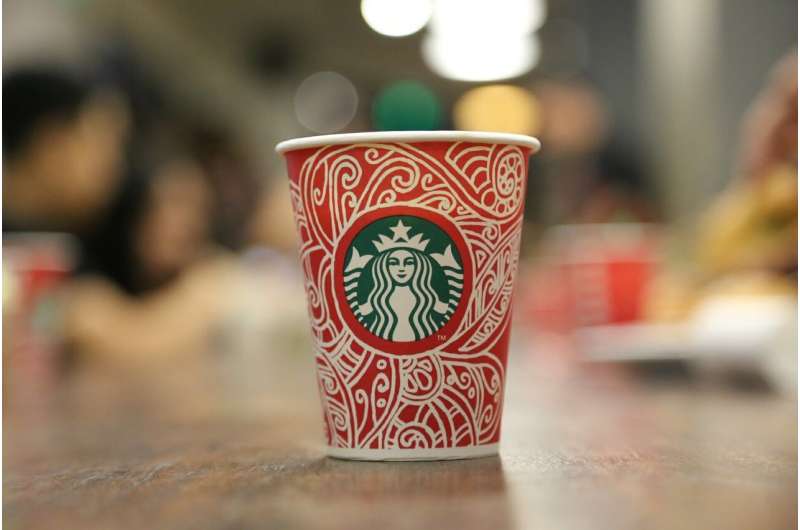Credit: Pixabay/CC0 Public Domain
With many cafes happy to again accept reusable cups as they adapt to the pandemic, Curtin researchers have developed a behavioral intervention program that helps people make a habit of reaching for reusable coffee cups, which could have significant environmental benefits.
The research, published in the Journal of Cleaner Production, involved 156 participants who took part in a six-week program aimed at harnessing the power of habit to increase the use of reusable hot drink cups instead of disposable ones.
Lead author Ms Elizaveta Novoradovskaya from Curtin's School of Psychology, said participants were randomly assigned to one of three interventions for the trial.
"There was a significant increase in the use of reusable cups in all intervention groups immediately after the intervention and at a six-week follow-up, compared to the control condition," Ms Novoradovskaya said.
"In one group participants were shown a short video about how paper cups cannot be recycled, which aimed to instill pro-environment values, while the second group was asked to set a goal for themselves to use a reusable cup, which is a technique based on intent driving behavior," Ms Novoradovskaya said.
"The third group was asked to keep their reusable cup in a visible place and was offered a choice of colored cup, to encourage forming of habit, while the fourth was a control group that did not receive an intervention."
Research supervisor Acting Head of Curtin's School of Psychology Professor Barbara Mullan said participants completed a pre and six-week post-intervention questionnaire assessing the strength of their habitual use of a reusable cup, their intention to use a reusable cup and their environmental values.
"We found the interventions produced immediate and longer-term positive behavioral change. Regardless of the intervention type, participants used their reusable cups a significant amount more following the trial, and did so due to an increase in habit strength," Professor Mullan said.
"As a result of the study, we recommend retailers provide customers with free reusable cups along with information on the environmental impacts of cup non-reuse, as the best way to encourage reusable cup use in the long-term. This will activate environmental values and forming of cup reuse habits and could ultimately decrease the amount of landfill waste, with a longer-term goal of abandoning single-use cups, approximately 16 billion of which are thrown away globally each year."
More information: Elizaveta Novoradovskaya et al. My cup of tea: Behavior change intervention to promote use of reusable hot drink cups, Journal of Cleaner Production (2020). DOI: 10.1016/j.jclepro.2020.124675
Journal information: Journal of Cleaner Production
Provided by Curtin University
























